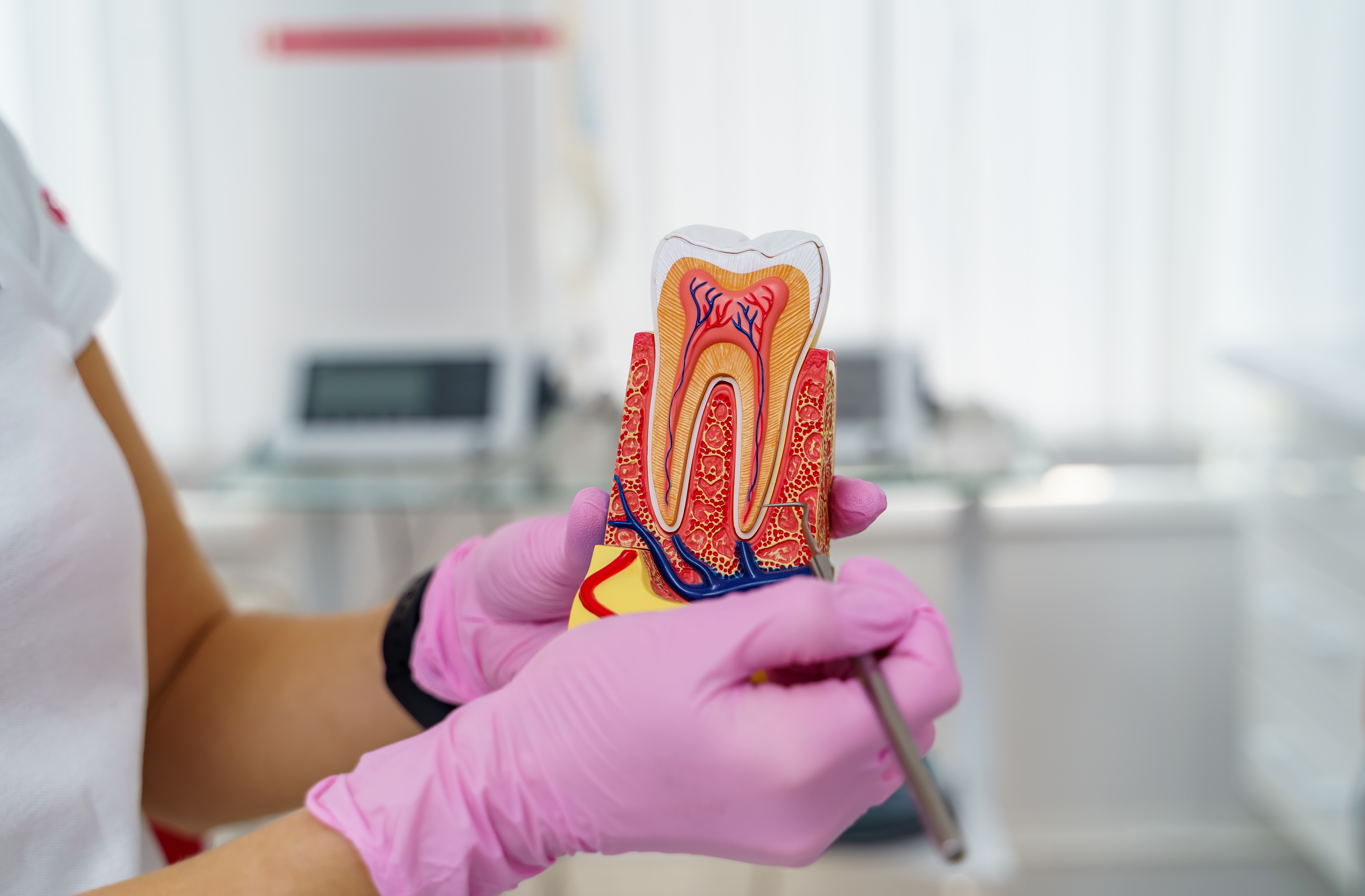 Tooth sensitivity is often the result of exposure to the underlying layers of teeth or the tooth’s root. General dentistry practices offer restorative treatment to deal with sensitive teeth. This article discusses the different types of treatments available to patients with sensitive teeth.
Tooth sensitivity is often the result of exposure to the underlying layers of teeth or the tooth’s root. General dentistry practices offer restorative treatment to deal with sensitive teeth. This article discusses the different types of treatments available to patients with sensitive teeth.
How general dentistry practices can treat sensitive teeth
Sensitive teeth can be treated in various ways. The recommended treatment depends on the severity of the sensitivity and its underlying cause. The most common types of general dentistry treatments to deal with sensitive teeth are dental fillings, root canal procedures, dental crowns, composite bonding, fluoride treatments, and gum treatments.
Dental fillings
One of the main causes of sensitive teeth is dental cavities (tiny holes in teeth). Cavities can form when the enamel (the outermost layer of teeth) erodes, leaving the underlying layers of teeth and the roots, where nerves and blood vessels are, exposed. A dental filling is used to treat minor cavities that cause sensitivity and other discomforting symptoms.
Root canal procedure
A root canal procedure is often used for larger cavities that cannot be addressed with a dental filling. Root canals can also treat tooth infections that lead to sensitivity as well. This procedure involves accessing the tooth’s root and removing the decayed or diseased portion of the tooth that is contributing to the sensitivity. The tooth is then thoroughly cleaned and filled with a material called gutta-percha. A dental crown is generally placed after a root canal procedure.
Dental crown
A dental crown, also called a dental cap, covers all sides of a tooth to restore its size and shape and protect it from further harm. This general dentistry restoration is usually recommended to repair a broken tooth, such as a chip or a crack, that leads to tooth sensitivity and other discomforting symptoms. A crown may be placed after a root canal procedure, as well.
Dental bonding
Dental bonding is also used for chips and cracks that may lead to tooth sensitivity. This treatment is often used for cosmetic reasons, and the material used closely matches the shade of natural teeth.
Fluoride treatment
Fluoride treatment may be an option for weakened enamel that has not yet eroded. Once enamel loses its strength, it could cause a sensitive feeling, especially when exposed to hot or cold substances or weather. Fluoride strengthens the bond of enamel to prevent decay and relieve sensitive teeth.
Gum treatment
Gum erosion and deep gum pockets, which often result from periodontitis, can cause tooth sensitivity. When this occurs, gum treatments may be the best way to cover the tooth’s root and relieve the sensitive feeling, along with preventing other concerns from developing.
Learn more about treatments for sensitive teeth
If you are dealing with sensitive teeth and want to learn about your treatment options, then contact our general dentistry practice today to schedule a visit. We offer a range of treatment options and can put together a long-term prevention plan after restoring the health and appearance of your teeth and gums.
Request an appointment or call Lalangas Family Dentistry at 972-534-6008 for an appointment in our Dallas office.
Related Posts
A general dentist performs general dentistry services and can serve as the first point of contact for patients who need other types of dental care. Some services, such as dentures, may require a referral to a dentist who focuses on a specific area of dentistry.The general dentist is usually responsible for preventative care, such as…
One of the more common concerns treated in general dentistry is a toothache. Treating toothaches involves determining the cause(s) of the toothache and treating the underlying concern because a toothache is generally a symptom of a more serious oral health issue.There are numerous ways a dentist can treat a toothache, and the most appropriate solution…
General dentistry encompasses a wide range of dental operations with the primary objective of preserving your natural teeth. Since the general dentist is your first line of defense against potential oral health problems, it is essential to go for a dental appointment at least twice yearly.The following are common general dentistry services:When the tooth pulp…


